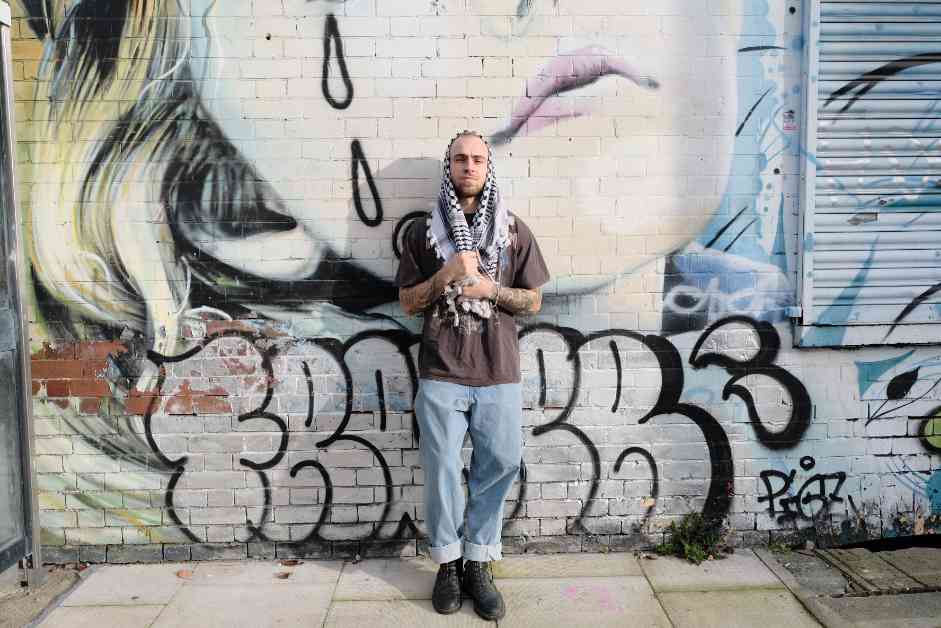Omar Hamaoui, a British-Lebanese poet, sat down for an interview at a trendy café in Bethnal Green, showcasing his unique style with an Iron Maiden t-shirt, tattoos on his muscular arms, and a Keffiyeh draped over his head. Despite his dyslexia, Hamaoui has been captivating audiences with his spoken word poetry performances around London and recently released his first book, “Saved by the Pen”.
In his book, Hamaoui delves into personal struggles such as drug addiction, alcoholism, the loss of his father, and the challenges of being a third culture child torn between two nations. Having split his time between the UK and Lebanon, he experienced an identity crisis, always feeling a sense of longing for the place he was not in.
Born in France to a British mother and a Lebanese father, Hamaoui moved to Beirut at a young age. During the Israel-Lebanon war in 2006, he was sent to a boarding school in the UK, where he tried to assimilate and fit in by suppressing his Arab identity. However, as he grew older, he embraced his Lebanese roots and reconnected with his heritage.
After facing severe depression and attempting suicide in Los Angeles, Hamaoui found solace in poetry as a form of self-expression. His therapist recognized his talent for writing and encouraged him to explore poetry as a creative outlet. Despite initially doubting his writing abilities due to dyslexia and ADHD, he developed a passion for poetry, leading him to share his work publicly.
Returning to Lebanon reignited his love for his Arab heritage, language, and culture. He found a balance between his British and Lebanese identities, cherishing the best of both worlds. His experiences during the Lebanese revolution in 2019 prompted him to move to London, where he felt torn between two homes.
In London, Hamaoui surrounded himself with a diverse Arab community, forming connections with people from various countries in the region. He co-founded a collective called “Azkadinya” to promote cultural practices from Southwest Asia and North Africa. Through his poetry, he blends English with Arabic phrases, drawing inspiration from renowned poets in the SWANA region.
Hamaoui recognizes the power of poetry as a tool for social change, particularly in conflict-ridden areas like Gaza and Palestine. He believes that poetry can amplify the voices of the marginalized and provide a platform for expression in times of crisis. By sharing his personal struggles and cultural insights through poetry, Hamaoui hopes to connect with audiences and evoke meaningful conversations.
As he navigates his dual identity as a British-Lebanese poet, Hamaoui remains humble about his place in the world of poetry, acknowledging the rich tradition of Arab poets who came before him. His journey from self-doubt to self-discovery serves as an inspiration to others grappling with their cultural heritage and personal challenges. Through his words, Hamaoui bridges the gap between cultures, inviting readers to explore the beauty of diversity and the power of storytelling.












